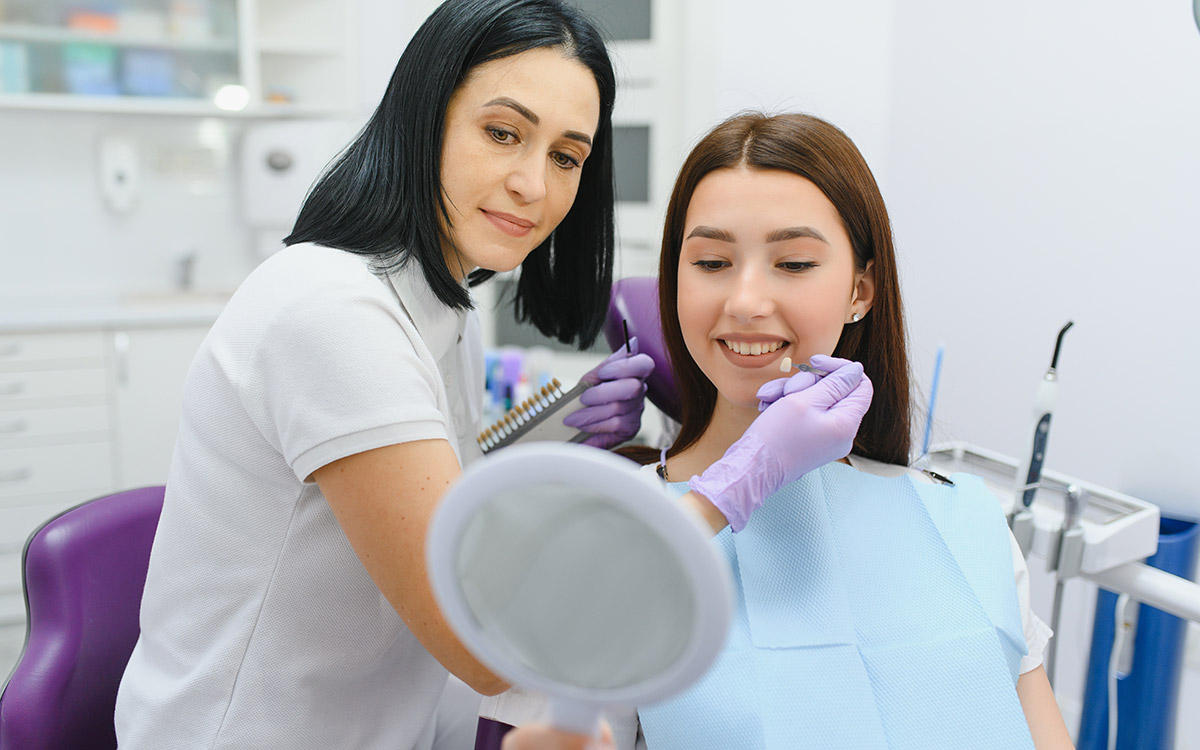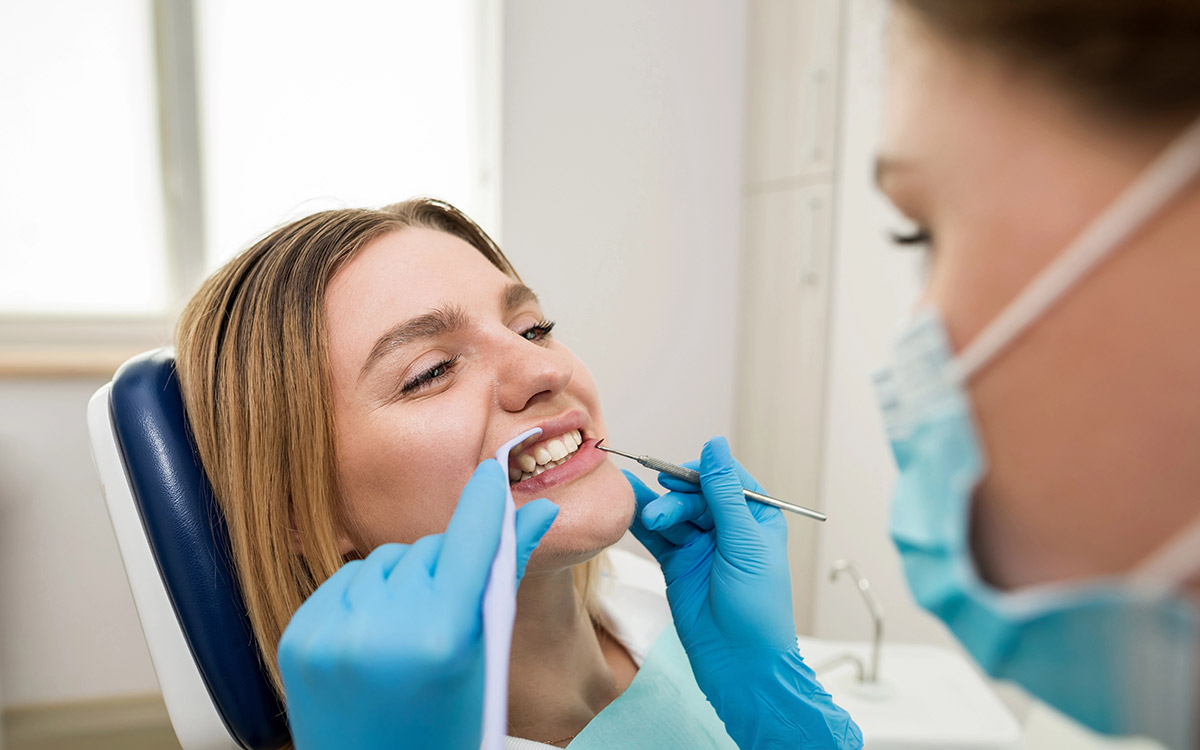Chocolate is one of the most sought delicacies in the world, and people have been consuming this sweet treat for decades.
Although most consider chocolate the ultimate feel-good food, we have been told that sugary foods are harmful to the teeth, especially with extended or prolonged exposure. But is chocolate such a great deal? Let’s find out.
What Does Chocolate Do To The Teeth?
If you have been consuming chocolate more frequently, here is what it does to your teeth:
- Can stain the teeth
- Contributes high sugar levels into the mouth, which supports plaque and bacteria growth leading to gum disease
- Sugar is converted to acids by the bacteria in the mouth, which eat away at the teeth’s surface.
- Weakens the enamel
- Causes tooth cavities and decay
Is Chocolate Good or Bad for Your Teeth?
The chocolate is not necessarily bad for your teeth, at least when compared to other sweet treats like hard candy, soda, or other sugary snacks. However, it can lead to serious dental problems like decay and cavities when ingested frequently.
The extent to which chocolate affects the teeth depends mainly on the type of chocolate. Different types of chocolates have varying effects on your teeth.
While too much milk or white chocolate can be detrimental to your teeth, some studies suggest that the polyphenols present in unprocessed dark, raw chocolate may help prevent the overgrowth of microorganisms like the bacteria that produce bad breath in the mouth.
Also, polyphenols can stop some sugars from converting to acid and eroding tooth enamel. Let us take a look at the common types of chocolate and their effects on your oral health.
White Chocolate and Teeth
Since it does not include any cocoa solids, white chocolate is arguably the least nutrient-dense chocolate type.
Although it may be high in calcium, there aren’t many other health advantages. Enjoy it on special occasions as a deserved treat! It is more likely to cause tooth decay and cavities owing to its higher sugar content.
Milk Chocolate and Teeth
Milk chocolate is one of the most prevalent and frequently consumed forms of chocolate. Sadly, it is not a very good option for your teeth. This is because it has a higher sugar content than dark chocolate, putting your teeth at risk of developing tooth cavities and decay.
But unlike white chocolate, milk chocolate can be healthy if consumed in moderation. The natural properties of cocoa, coupled with added fatty acids and calcium, help to keep several health issues at bay.
Dark Chocolate and Teeth
Dark chocolate is the ultimate choice for maintaining healthy and cavity-free teeth. Research implies that dark chocolate is highly complex and packed with more than 300 compounds, which may help fight cavities.
- Polyphenols present in this chocolate can help fight the overgrowth of microorganisms in your mouth. These chemicals can make bad breath a thing of the past by destroying the underlying bacteria and stopping some sugars from becoming acid, which can erode your tooth enamel and cause tooth cavities and decay.
- Dark chocolate has flavonoids that are known to decrease tooth decay.
- The antioxidants in dark chocolate have proved a great deal for overall health in various ways. And when it comes to dental health, increased amounts of antioxidants in saliva have been linked to reduced gum disease.
- Dark chocolate contains only 30% powdered milk and sugar and about 70% cocoa. This significantly decreases the potential harm to dental enamel compared to milk chocolate.
A Breakdown of Sugar Content Per Chocolate
Here is a summary of the sugar content of some of the most common chocolate types, as per the USDA.
- White chocolate contains 17 g/ounce
- Milk chocolate contains 15 g/ounce
- Dark chocolate contains 14 g/ounce
Be Kind to Your Teeth and Still Consume Chocolate
So, how can you enjoy your chocolate without compromising your oral health?
1. Eat chocolate all at once
Yes, you read that right! Consume chocolate after your main course for dessert. Avoid nibbling on chocolate throughout the day because every time you do, the sugar in the chocolate produces damaging acids that attack the tooth enamel. Eating your chocolate all at once reduces the time sugar remains on your teeth. Thus it is less likely to cause dental decay.
2. Wash the treat down with water
When eating chocolate, there are likely to be some tiny deposits left on and around your teeth. This is particularly true if your preferred chocolate contains caramel or nougat.
If you do not remove the sugars from your mouth, you will likely experience decay. You can get rid of most of the chocolate particles by just swilling with water which will lower the detrimental effect chocolate has on your oral health.
3. Choose dark chocolate
Consider dark chocolate instead of your usual treats. Since dark chocolate is lower in sugar and rich in antioxidants than white or milk chocolate, the chances of developing dental issues will be minimal.
4. Adhere to good oral hygiene habits
You may take a vacation from your regular schedule during the Easter break in favor of going out or traveling to visit family or friends, but remember to take good care of your teeth.
Always use fluoride toothpaste, and remember to wait for at least 30 minutes after consuming chocolate to brush your teeth. Doing so enables your tooth enamel to recover from being softened by acids.
Brushing the teeth immediately after eating chocolate puts your enamel at even more risk of harm. Continue practicing other dental hygiene practices such as chewing sugar-free gum, using fluoride mouthwash, and flossing.
Book An Appointment with a Dentist
If you have been consuming too much chocolate and are worried about the impact of sugar on your oral health, seeing a dentist or hygienist will help.
Our dentist will thoroughly examine your gums and teeth during your dental assessment. They will use a cutting-edge airflow treatment for swift, comfortable, and efficient plaque and stain removal, exposing a healthier, more radiant smile.
Book your appointment today to ensure chocolate does not ruin your dental health and perfect smile.







